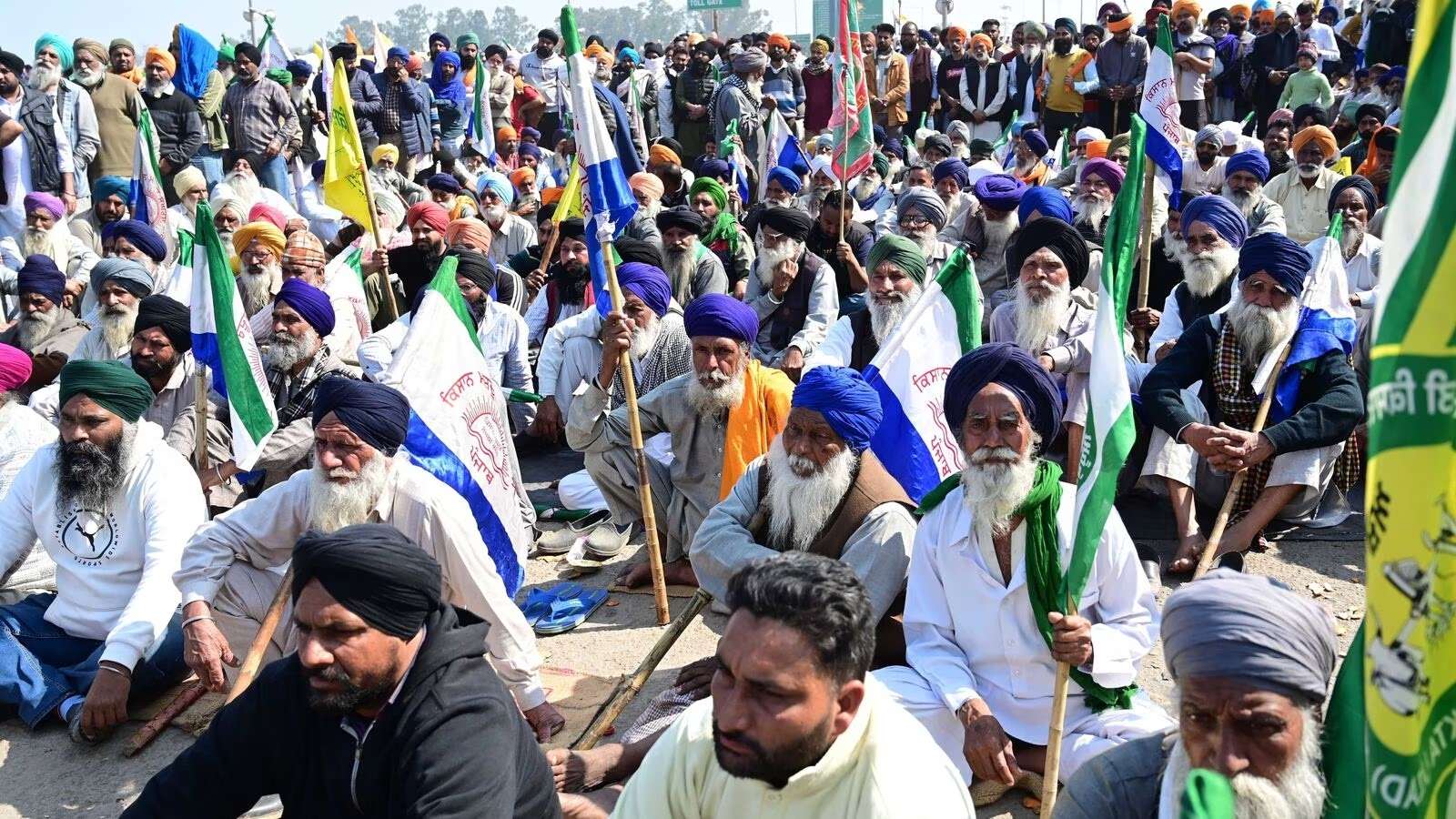
In a heartbreaking turn of events, a young protester lost his life as farmers persisted in their march towards India’s capital. Despite four unsuccessful rounds of talks with the federal government, the deadlock prevails, escalating tensions between the protesting farmers and the police.
Clash and Controversy
The unfortunate demise of a 22-year-old protester, confirmed by Punjab’s health minister and a hospital official, sparked controversy. While the farmers’ union accused the police of causing the death, Haryana Police vehemently denied any such incident during the protest.
Demands and Dilemmas
The farmers, advocating for guaranteed prices for their crops, engaged in clashes with the police aiming to block their path to Delhi. Memories of a prolonged protest at Delhi’s borders linger, prompting officials to fortify the city’s perimeters with barricades and barbed wires.
Unraveling the Tragedy
The recent fatality, identified as Farmer Shubh Karan Singh, occurred on the Punjab-Haryana border. Hailing from Balon village in Bathinda district, Singh, the sole breadwinner of his family, succumbed to a bullet wound to the head, as reported by Dr. Harnam Singh Rekhi of Rajindra Hospital, Patiala.
Conflicting Narratives
While Punjab’s health minister mentioned another youth surviving a bullet wound, Haryana Police dismissed reports of the farmer’s death as mere rumors. The police accused protesters of violence, asserting that 12 officers were injured in attacks involving sticks, maces, and stone pelting.
Protest Strategies
Faced with adversity, farmers declared a two-day sit-in protest and hinted at the use of heavy machinery to breach barriers. At the Shambhu border, visuals captured farmers preparing to deploy bulldozers and earthmovers. Kite-flying interference with police drones and pleas for unity echoed among the protesters.
Political Landscape
As tensions rise, Agriculture Minister Arjun Munde extended an invitation for a fifth round of talks. With general elections on the horizon, the government treads cautiously, mindful of the influential voting bloc that farmers represent.
Unyielding Stand
Farmers, emphasizing the peaceful nature of their march, pleaded with the government to allow entry into the capital. Discontent stems from perceived unfulfilled promises and demands, including pensions and debt waivers, made during the 2020-21 protest.
Stalemate Continues
Despite four rounds of negotiations, the government’s proposal to buy select crops at assured prices for a five-year contract was rejected by farmers. The demand for a legal guarantee on the Minimum Support Price (MSP) for all 23 crops remains a steadfast point of contention.
Heightened Precautions
As the situation intensifies, police directives urge maintaining a safe distance for women, children, and journalists at the borders. In Delhi, security measures tighten, prohibiting large gatherings for a month.
In this charged atmosphere, the fate of the farmers’ protest intertwines with political implications, emphasizing the urgency for dialogue and resolution.


